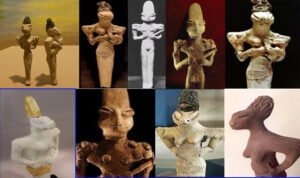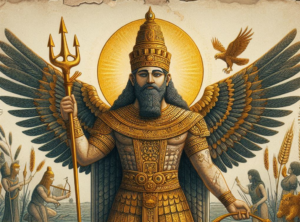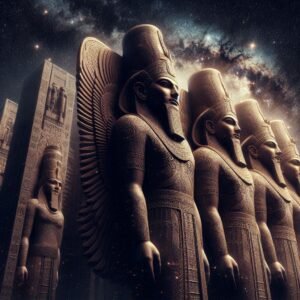The Ubaid Culture The Ubaid culture is an important prehistoric culture in the ancient Near East, particularly in Mesopotamia, which laid the foundation for later civilizations such as the Sumerians. The Ubaid period (approximately 6500 to 3800 BCE) is known for its distinctive archaeological features, including pottery, settlements, and early forms of social organization. It …
Tag: anunnaki
Permanent link to this article: https://truthofself.com/the-ubaid-culture/
Jul 13
The God Ninurta
Permanent link to this article: https://truthofself.com/the-god-ninurta/
Jul 13
The Goddess Ereshkigal
Ereshkigal is a prominent figure in Mesopotamian mythology, known as the goddess of the underworld. Her name translates to “Queen of the Great Earth” or “Lady of the Great Place.” She rules over the land of the dead, often referred to as Kur or Irkalla, and is responsible for keeping the dead within her realm and preventing the living from entering.
Permanent link to this article: https://truthofself.com/the-goddess-ereshkigal/
Jul 13
The Igigi lesser gods
The term “Igigi” refers to a group of mythological figures in Mesopotamian mythology. They are often considered the younger gods who served the Anunnaki, the major deities. According to the Atrahasis myth, the Igigi were tasked with laborious work for the Anunnaki until they eventually rebelled due to the harsh conditions.
Permanent link to this article: https://truthofself.com/the-igigi-lesser-gods/
Jul 12
The God Enlil
Permanent link to this article: https://truthofself.com/the-god-enlil/
Jul 12
The Goddess Ishtar
Ishtar, known as Inanna in Sumerian, is a deity of profound complexity and significance in Mesopotamian mythology, embodying the dualities of existence such as love and war, fertility and desolation. Her worship spanned across the ancient Near East, marking her as one of the most venerated figures in early human civilization
Permanent link to this article: https://truthofself.com/the-goddess-ishtar/
Permanent link to this article: https://truthofself.com/the-anunnaki-and-the-birth-of-the-cabal/







